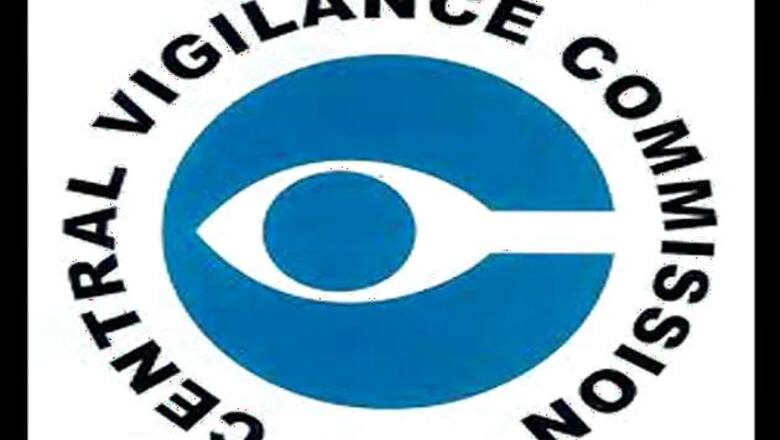
views
New Delhi: A six-member panel of experts has been formed by the Central Vigilance Commission (CVC) to review pending cases, referred to it by CBI for sanction of prosecution against corrupt government officials.
CVC tenders advice in respect of officers coming under its jurisdiction against whom the CBI has sought sanction for prosecution for their alleged involvement in corruption.
The committee comprises retired IAS officers Sudhir Krishna and CB Paliwal, former IRS officer Sada Shiv Bajpai, former Indian Audit and Accounts Service officer Sushama V Dabak, former Special DG of CPWD PK Gupta, and ex-chairman of LIC AK Shukla, an order issued by CVC said.
"Depending upon the nature of the case, a committee consisting of three members including the chairperson (i.e. Vigilance Commissioner) shall examine the CBI recommendation and tentative views of the Ministry or Department concerned in greater detail. Two members of the Committee would be drawn from the experts panel and one of the Vigilance Commissioners in the Commission would chair the meeting," the CVC said.
In view of the expert committee's recommendation, the CVC would render appropriate advice to the competent authority within 15 days of the meeting, it said. The tenure of the panel would be for a period of two years from April 1, 2015.
The move assumes significance as there has been delay in many cases seeking sanction for prosecution. About 17 cases involving 37 central government officials have been pending for prosecution sanction for more than four months, according to the latest CVC data.
Of these, a highest of six cases are pending with the Ministry of Personnel - which is the nodal authority for anti-corruption and other matters, two each with Bank of India and Defence Ministry.
One case each related to Finance Ministry, Home Ministry, South Delhi Municipal Corporation, State Bank of India, State Bank of Patiala, Industrial Development Bank of India and Gramin Bank has also been pending for prosecution.
As per the norms, sanction for prosecution requests have to be decided within four-month time. The Personnel Ministry has also started a single-window clearance system to avoid inordinate delays in dealing with corruption cases. It has also come out with a checklist for authorities handling corruption cases involving bureaucrats and sought mandatory compliance with the same as part of the new system.




















Comments
0 comment